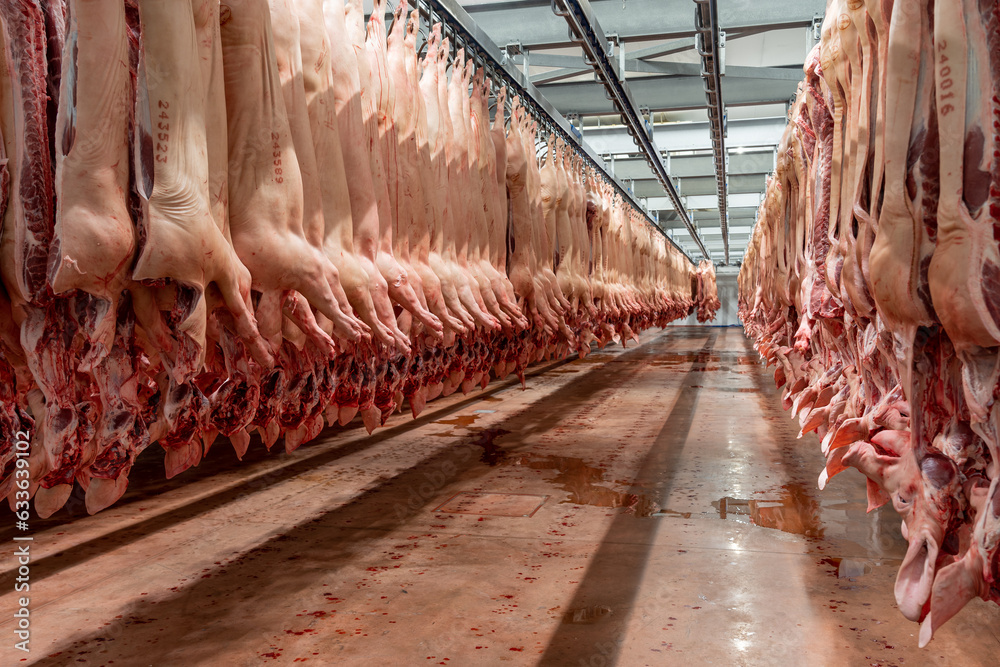Meat industry bodies have rejected calls by the government’s animal welfare advisory body to phase out the use of carbon dioxide as a means of stunning pigs in abattoirs.
The independent Animal Welfare Committee’s (AWC) opinion on the ‘welfare impacts on pigs of high concentration CO2 gas stunning and of potential alternative stunning methods’, published today, calls for a transition to alternative methods within five years.
The Association of Independent Meat Suppliers (AIMS) has responded by vowing to ‘defend the UK’s position as a global leader in humane food production’.
It warned that the document misrepresents the realities of modern slaughter systems and risks reversing decades of welfare progress.
AIMS said the AWC was actively pressing the industry to move away from what is currently the best and most widely proven method of stunning to one that remains unproven, experimental, and – based on trial data – likely to reduce overall welfare when assessed from start to finish.
“Under current UK practice, pigs are handled calmly in small social groups and moved quietly through a CO₂ chamber, where they lose consciousness rapidly and without restraint. The process is continuously monitored by trained staff and veterinary professionals and operates under some of the strictest welfare legislation anywhere in the world,” it said.
This approach, refined over decades, minimises fear, handling stress, and injury, and is recognised internationally — as the most humane, consistent and scalable stunning method available.
“By contrast, other methods result in higher stress and variable reliability; electrical stunning requires individual handling, and argon-based stunning necessitates longer exposure times, both of which can compromise welfare.”
Practical detail
AIMS said the AWC report contains ‘factual inaccuracies and a lack of practical detail on how any transition to alternative methods could be achieved safely or effectively’, and that it fails to address key operational realities, such as plant design, gas supply, staff safety and the handling challenges that would arise in commercial abattoirs.
Dr Jason Aldiss, AIMs’ executive director, said: “The AWC’s recommendation would replace a proven, welfare-led system with one that is untested in practice and, in trials, shows poorer outcomes.
“The UK industry will only ever use the best and most humane systems available — and we will vigorously oppose any attempt to reduce welfare standards under the guise of progress.”
AIMS pointed out that Britain’s pig sector is not out of step with other world-leading nations, and said CO₂ stunning, when operated under the UK’s stringent oversight, ‘continues to deliver exceptional welfare outcomes’.
AIMS reaffirmed its commitment to continuous improvement, supporting ongoing research to refine existing CO₂ systems through better design, monitoring and staff training — but said ‘change must be driven by science, not ideology’.
“British consumers can be reassured that our pig industry leads the world in humane production,” Dr Aldiss added. “We will not stand by while unfounded claims risk lowering that standard. Welfare comes first — always.”
Difficult timeframe
Nick Allen, chief executive of the British Meat Processors Association, said the structural changes to plants that would be needed will be difficult to achieve within the five-year timeframe and ‘would likely not yield the desired animal welfare improvements’, while rendering processors uncompetitive.
“As the report acknowledges, there is currently no commercially tested inert gas alternative to CO₂ that has been trialled, licensed and is ready to implement,” he said.
“Additionally, the animal welfare issues, which the report highlights, associated with the other suggested alternatives would prove worse than the current system, putting more stress, not less, onto animals. This would mark the UK out as a single outlier in the world – no other country has gone down this route.
“Given the UK imports 50% of its pigmeat, and it would be illegal to ban imports from countries using Co2, moving away from Co2 would slow down operations to such an extent that it would render processors completely un-competitive. It would decimate the domestic pigmeat industry and be a severe blow to UK food security.
“While we can see that the AWC has looked at this with the best of intentions, there are serious flaws to some of their recommendations which could have unintended consequences and could even reverse some of the improvements in animal welfare achieved in Britain over the years.”




